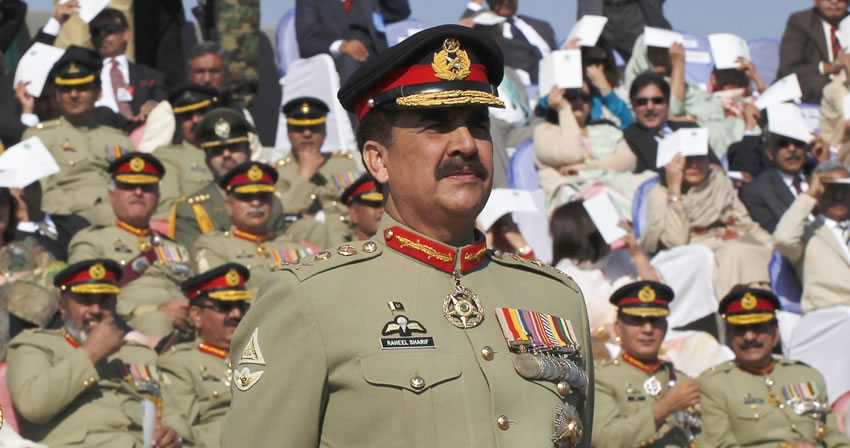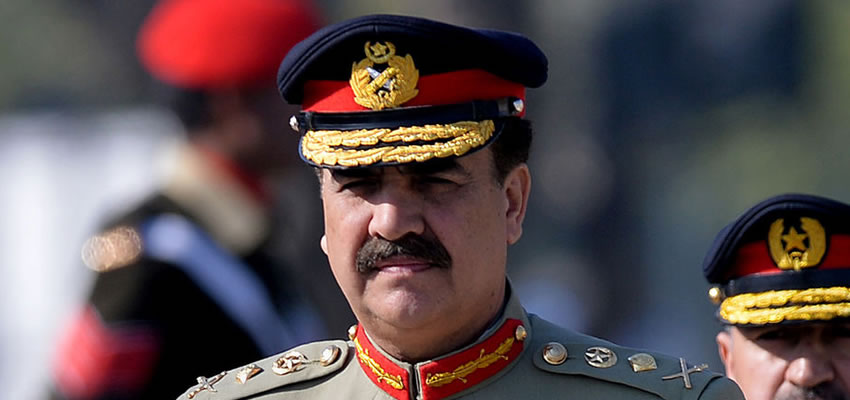Chief of Army Staff (COAS), General Raheel Sharif, on Monday arrived in United States on week-long official visit to discuss security issues. According to ISPR,
[contentblock id=1 img=adsense.png]
the Army Chief will spend five-days in the United States, from Nov 15 to 20, and three days in Brazil. He will also spend a day with Pakistani peacekeeping troops at the UN Mission in Ivory Coast.

Pakistan’s influential military chief’s visit comes weeks after Prime Minister Nawaz Sharif met with US President Barack Obama at the Oval Office to discuss many of the same issues said to be on his army chief’s agenda, including Afghan peace talks and Pakistan’s nuclear ambitions. Analysts said Raheel Sharif’s influence over both issues makes him, rather than the civilian leadership, the dominant broker for Washington’s regional agenda. The Americans “know where the power is”, Pakistani defence and security analyst Talat Masood told AFP. However that is likely to make the visit “a bit trickier” for Sharif as he tries to balance Washington’s demands, particularly in Afghanistan, said analyst Zahid Hussain, a columnist in Pakistan.
[contentblock id=2 img=gcb.png]
Stability in Pakistan’s neighbour Afghanistan has spiralled after a Taliban surge in recent months, and Obama announced in October that Washington will keep thousands of soldiers in the country past 2016. Washington sees Islamabad as one of its few partners with the influence to bring the afghan militants to the negotiating table. The new Taliban leader Mullah Akhtar Mansour is believed to have close ties to Pakistan. Sharif will also hold detailed discussions with US defence officials about the militant Haqqani network, which comes under the umbrella of the Taliban and has been described by US officials in the past as a “veritable arm” of Pakistani intelligence, a security official said. Some in Washington believe Pakistan has not done enough to bring its influence to bear and to persuade the group to renounce violence, and during Nawaz Sharif’s trip in October Obama stressed that Pakistan needed to take action against groups that undermine peaceful dialogue.
[contentblock id=3 img=adsense.png]
The pressure has increased since an initial round of peace talks was broken off this summer when the death of long-time Taliban leader Mullah Omar was announced. Nawaz Sharif agreed last month to help Afghanistan re-start the talks, but Washington’s concerns over the collapse of negotiations are “casting a shadow over the general’s coming visit”, Hussain wrote this week. Masood, a retired lieutenant general, noted the unusual circumstances surrounding the trip. “It’s not that the Americans have invited him but he has invited himself,” he said, adding that it would be Sharif’s second visit this year. “Normally this doesn’t happen.” It signals the “importance of the problems that both the countries seem to be facing in the region and especially because of the Afghan situation”.













